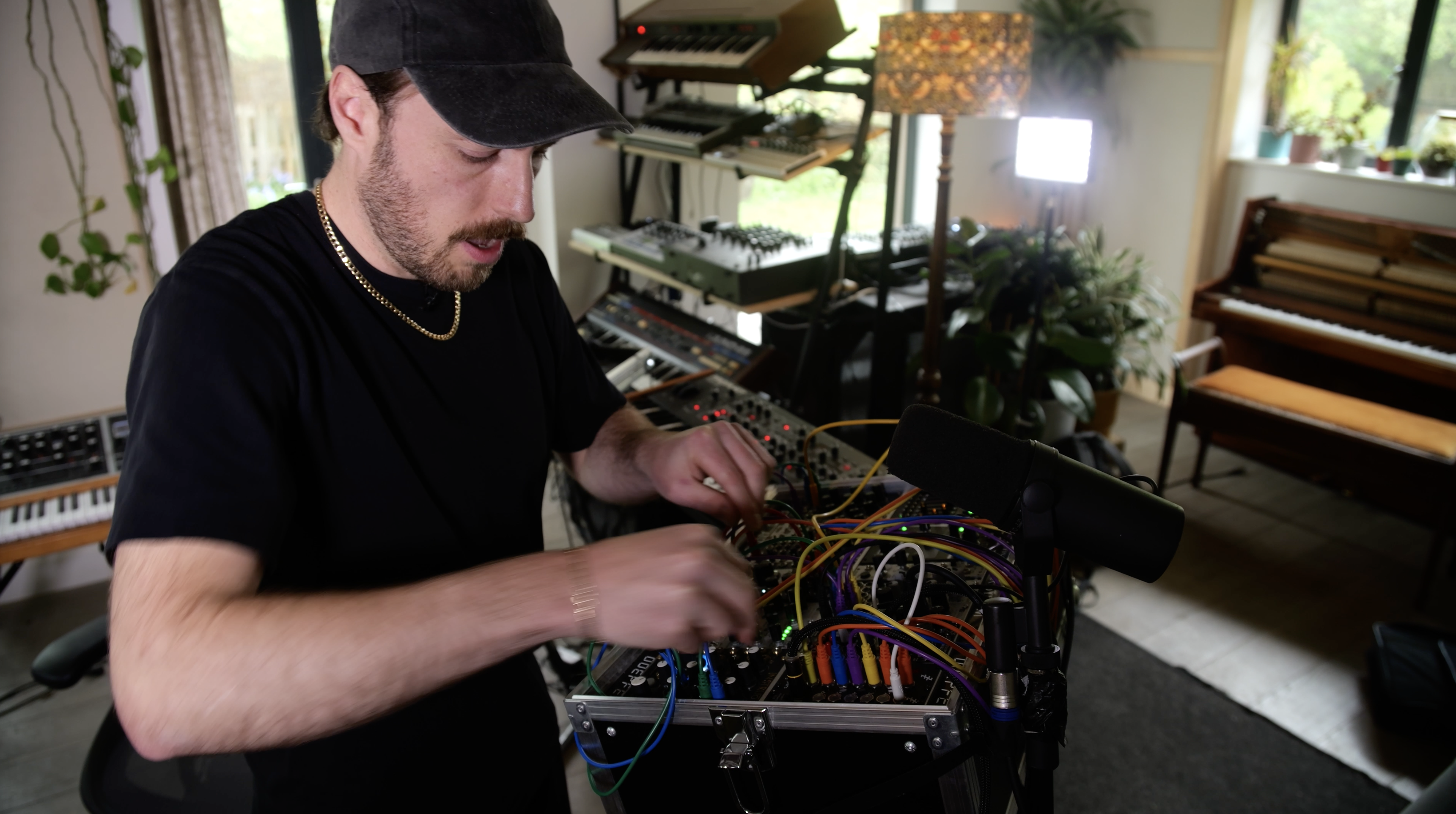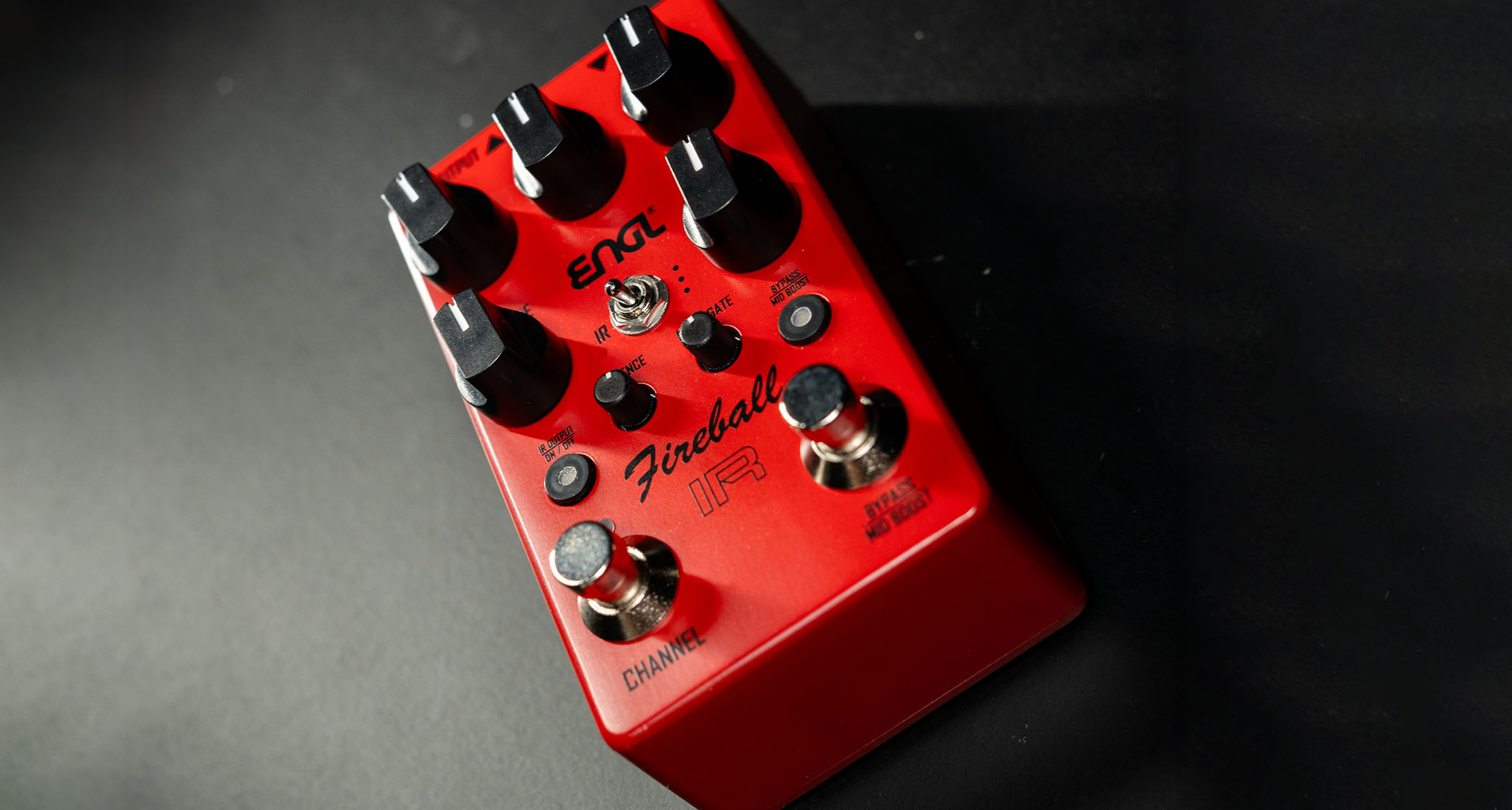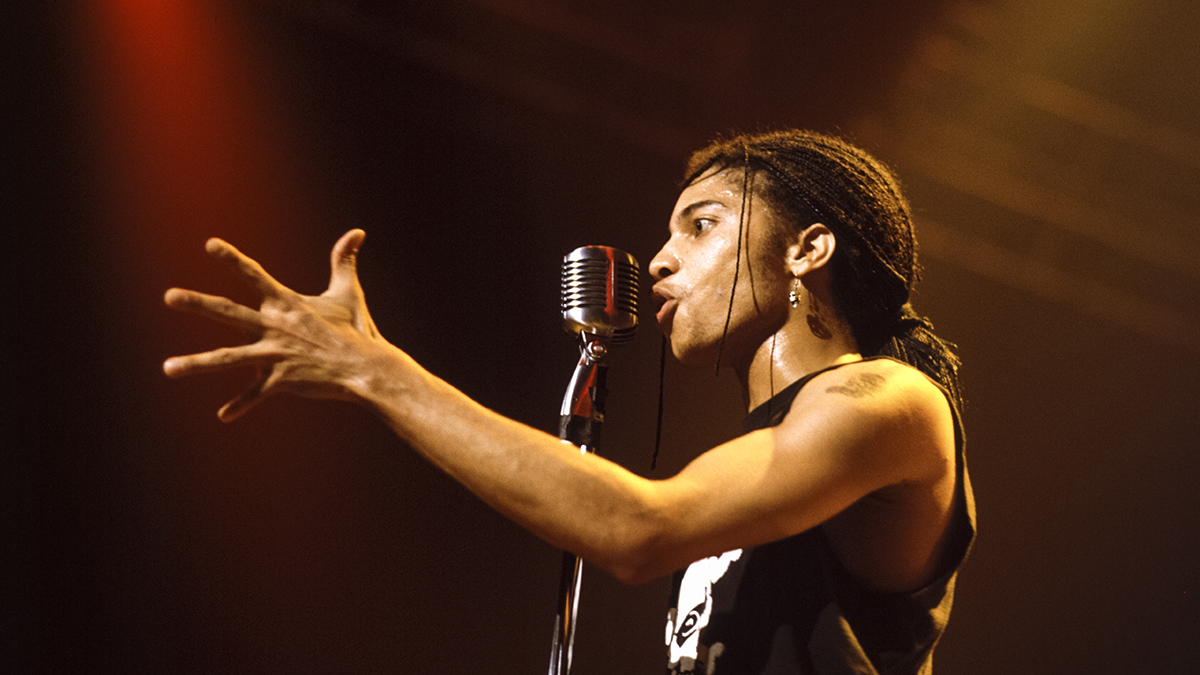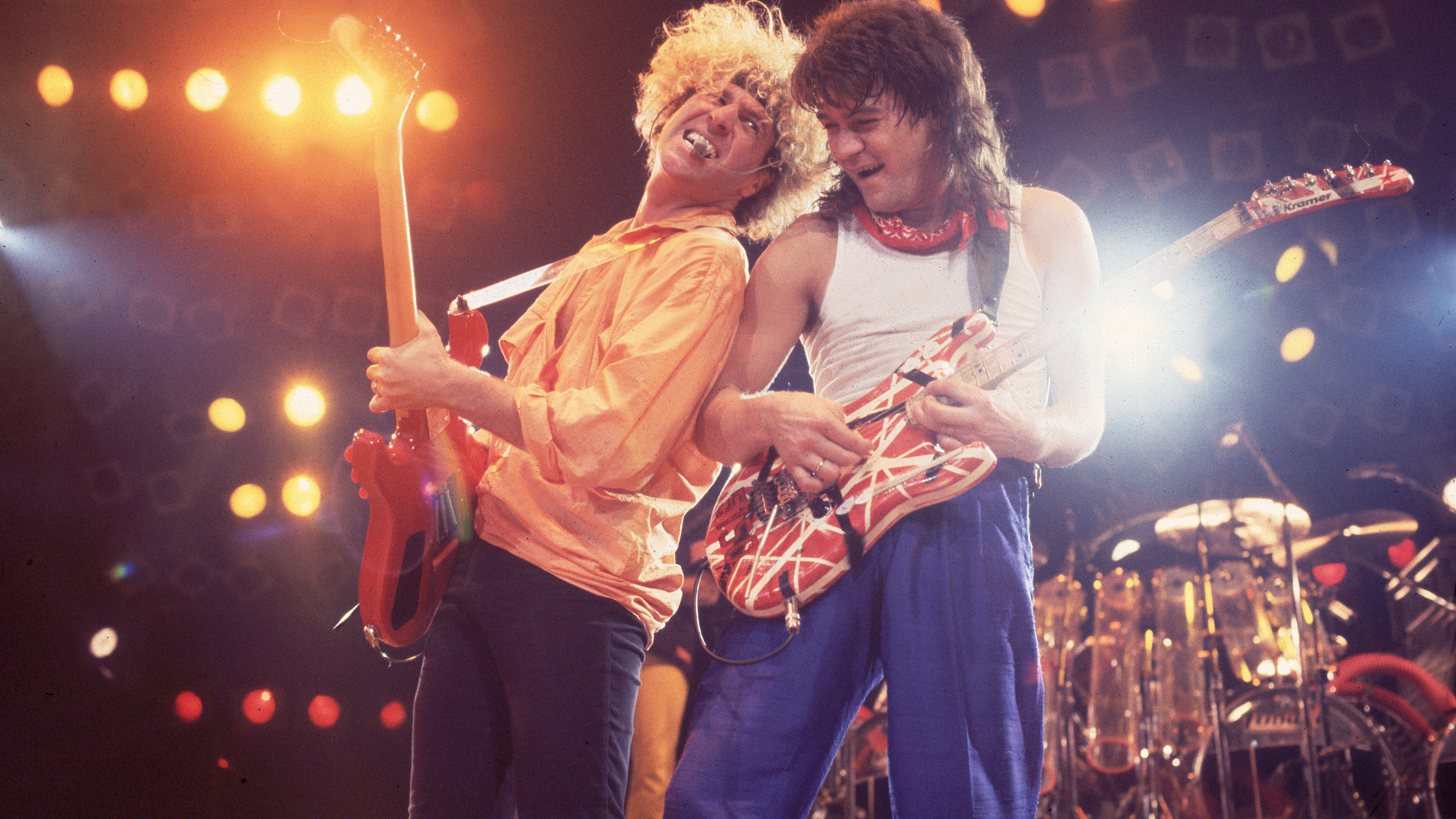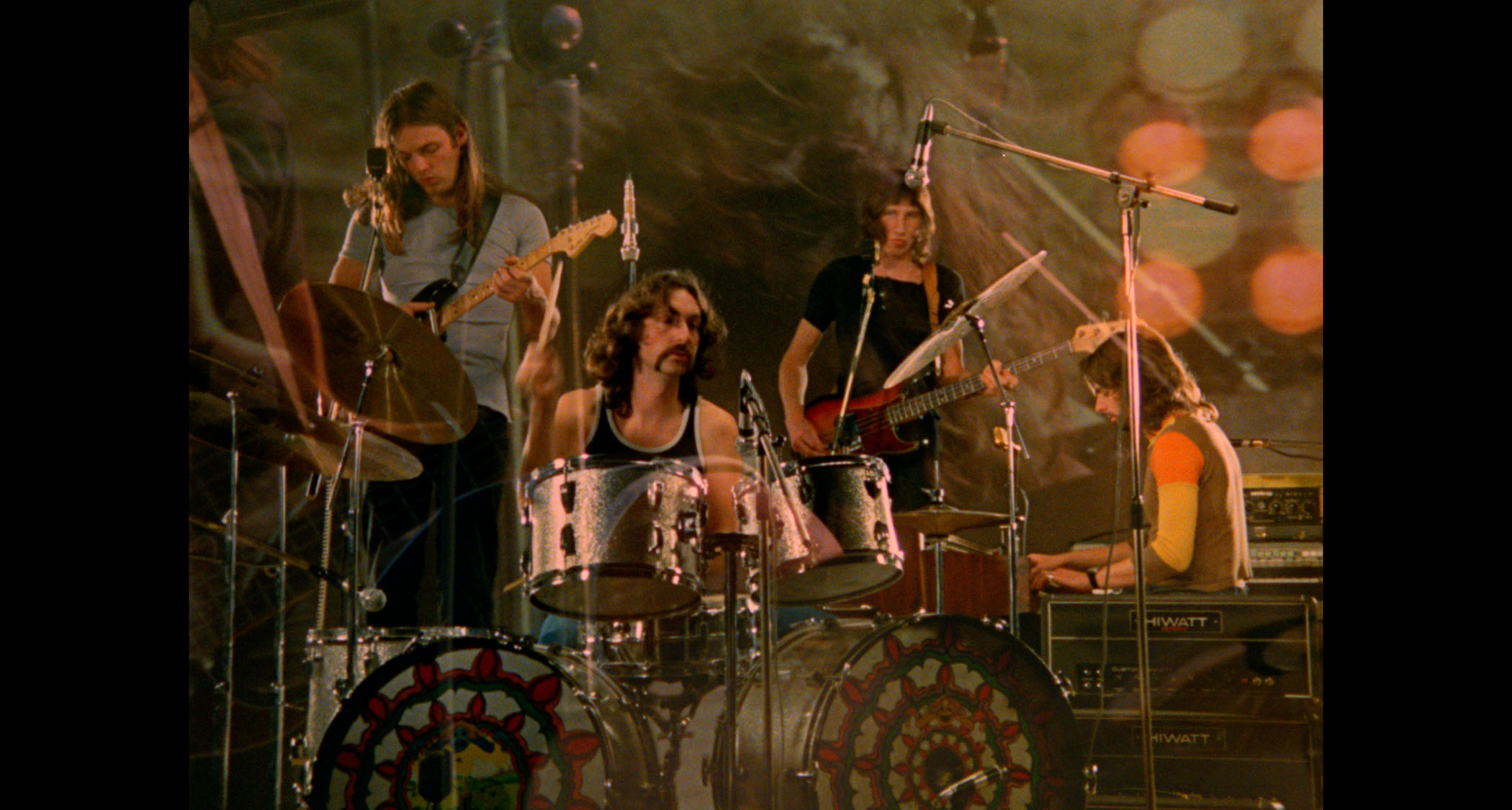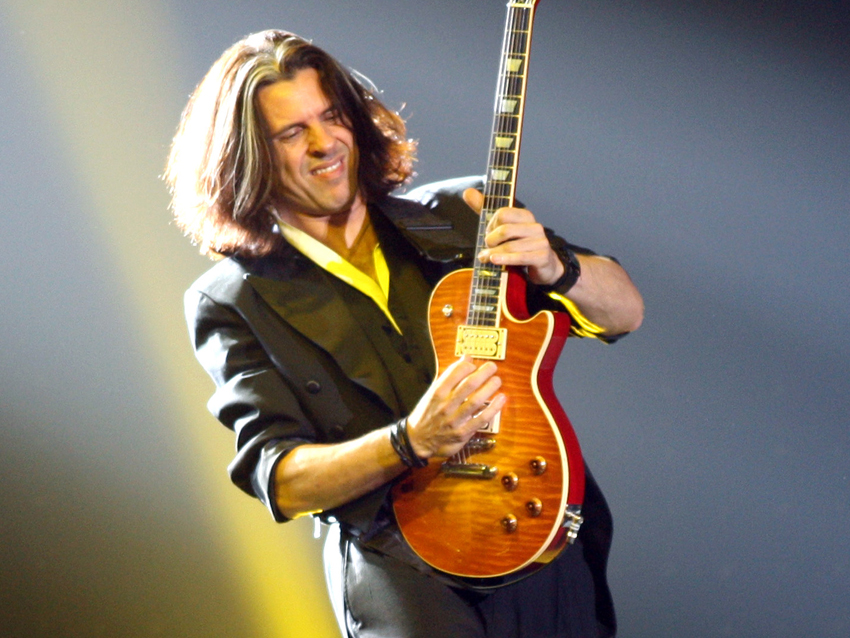
Testament's Alex Skolnick picks 10 essential guitar albums
A lot of guitarists talk a good game when it comes to versatility, but few players can match the chameleon-like diversity of Alex Skolnick. Whether it's walloping thrash with Testament, expansive rock-jazz with his own Alex Skolnick Trio or symphonic prog-metal with Trans-Siberian Orchestra, Skolnick's quick-change acts could make even Clark Kent green with envy.
Growing up, the guitarist's listening habits leaned heavily towards The Beatles and KISS, but he was also enamored of ‘50s rock 'n' roll – Chuck Berry being a particular favorite. "I remember seeing the movie American Hot Wax," says Skolnick. "Chuck Berry played himself, and he completely knocked me out. Seeing him live in that film lit a spark under me and got me thinking about lead guitar."
Van Halen's 1978 debut album was the forest fire. Skolnick calls the record "that thing that made me really understand the impact of true virtuosity. There's no question that my world changed dramatically when I heard Eddie Van Halen play."
By the late '80s, Skolnick was being hailed as one of the most technically proficient and gifted metal guitarists in the world, and it was around this time that he saw Miles Davis on TV playing with one of his electric-period bands. "I didn’t even know it was jazz," he says. "I just liked it. The Miles stuff from that era got me into checking out more jazz players, and my ears opened up in a whole new way."
On the following pages, Skolnick runs down his choices for what he considers to be 10 essential guitar albums (listed alphabetically by artist). “There are gems that show up over the years, and they’re very special," he says. "They appear less frequently as you get older, so you tend to go back to them... and they become even more important."
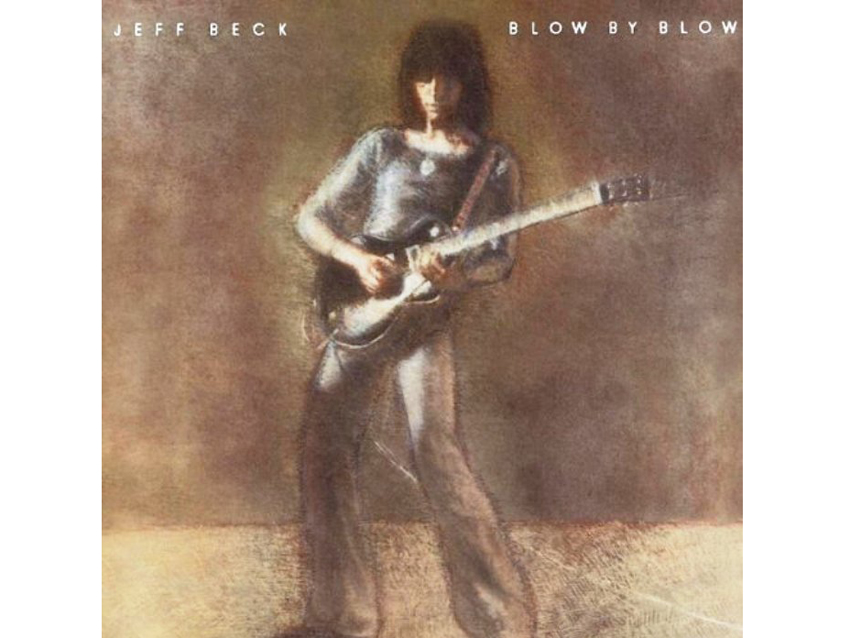
Jeff Beck - Blow By Blow (1975)
“I had already become more serious as a guitar player, thanks in large part to Van Halen. Reading up on other guitarists, Jeff Beck’s name kept coming up. Plus, at this point, Blow By Blow was the biggest-selling instrumental record of all time. Everybody seemed to know about it. If I was going to check out Jeff Beck, this seemed to be the logical choice.
“When I first heard it, parts of it were a little over my head. Jeff definitely had some jazz influences, and I wasn’t yet listening to jazz. There’s a Charlie Mingus tune, though it’s treated as something of a blues number. And Scatterbrain is pretty heady, too. It wasn’t long before I started to grasp it, though, and then I really got into it.
“To this day, I’ll put it on and think that it sounds great. It kind of changes the atmosphere.”
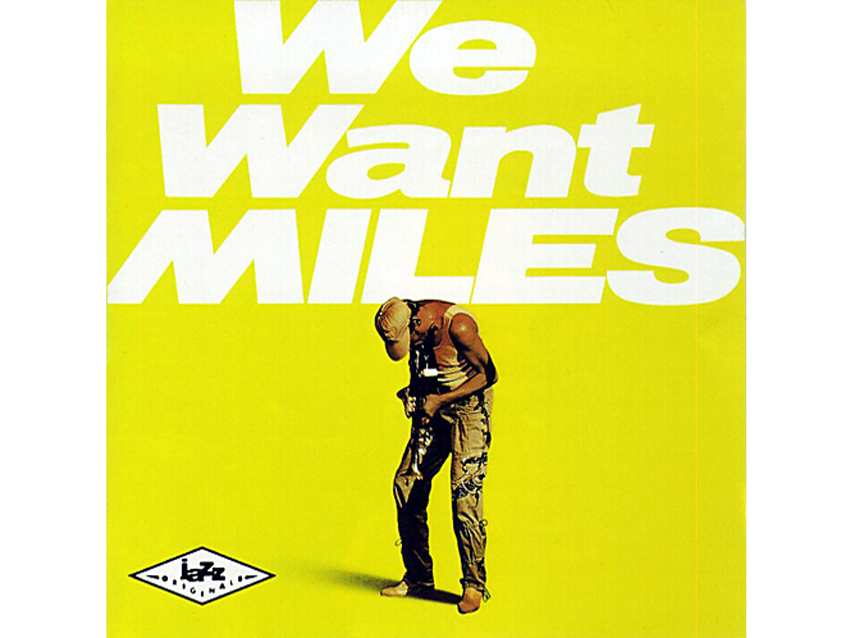
Miles Davis - We Want Miles (1982)
“Mike Stern is on guitar, and he’s unbelievable. It’s an intense, incredibly diverse record. This one, too, triggered a real interest in jazz for me and made me want to explore music on a deeper level.
“At the time when this album was made, Mike had something about him that really represented the time period – he’s playing jazz, but he's got a hard, rock ‘n’ roll approach. Something very special was happening inside him, and it’s all over the record.”
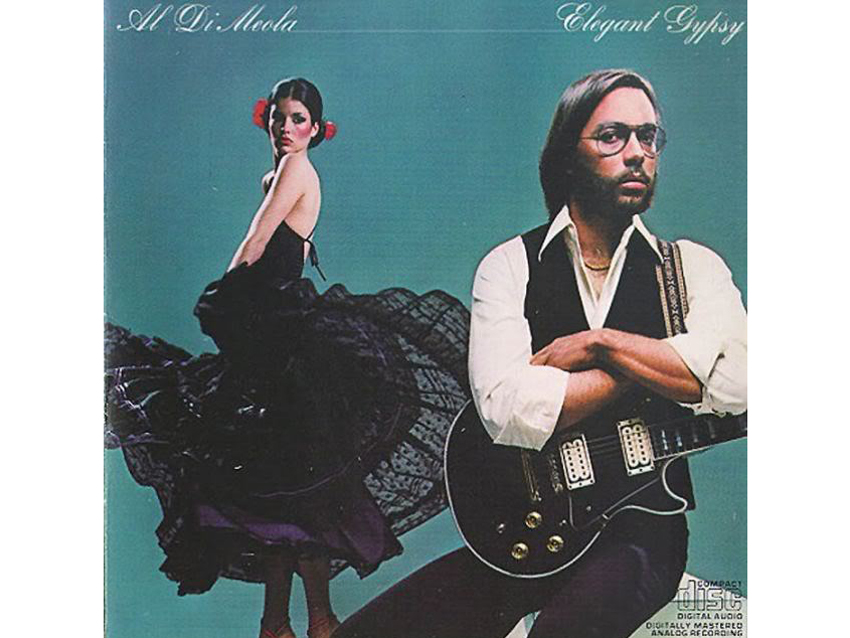
Al Di Meola - Elegant Gypsy (1977)
“This is the record that not only inspired me to play more acoustic guitar, but it was also my gateway to world music. It got me listening to Paco de Lucia, who guests on the album, and it also exposed me to Chick Corea’s acoustic piano playing, which became a major influence.
“The songs that feature Paco and Chick are monumental pieces of acoustic guitar music, especially Mediterranean Sundance with Paco – it’s almost too much guitar brilliance. To my ears, it’s like Al and Paco were trying to outdo each other.
“The music is very virtuosic but extremely listenable; you really don’t have to be a guitar player to enjoy it. A very inspiring album. I bought a steel-string acoustic and started playing it because of Elegant Gypsy.”
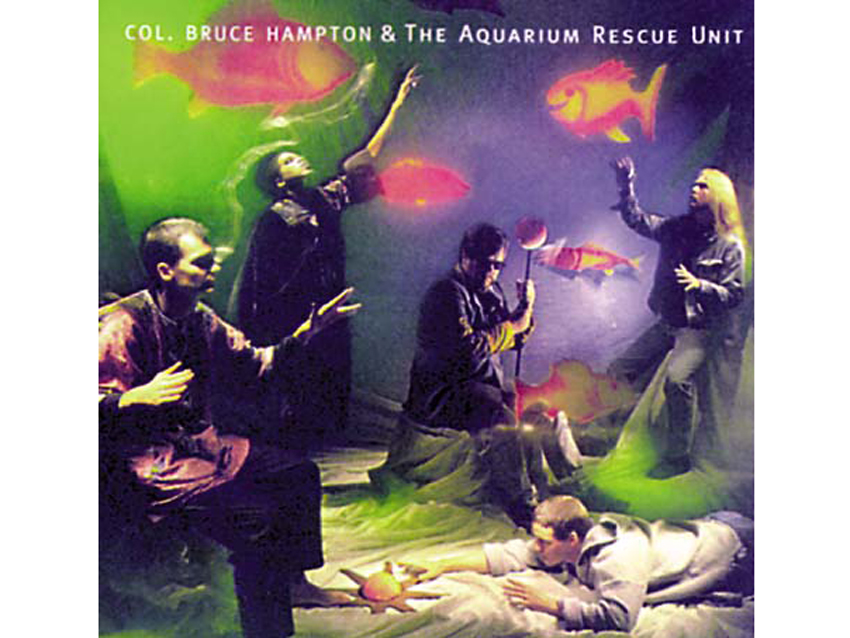
Col. Bruce Hampton And The Aquarium Rescue Unit - Live Album (1992)
“The guitarist is Jimmy Herring. This is one of those records that, anytime I play it for somebody, it’ll make that person scratch his head and say, ‘Why have I not heard of this guy?’It's really that good.
“Jimmy is somebody who has a little bits of many guitar players inside of him. He’s very diverse. No matter what he plays or what kind of music he performs, he can make it work. Put him on stage with a rock band, he’ll fit right in. Put him alongside James Burton, and he’s totally comfortable. That’s a rare kind of talent.
“It’s the debut of the Aquarium Rescue Unit when they joined forces with Col. Bruce Hampton. I had met the keyboardist T. Lavitz of the Dixie Dregs, and he told me about this guitar player who really knocked him out. I checked out the record and was very impressed by Jimmy’s vocabulary on the guitar. His total approach to the instrument is vast.”
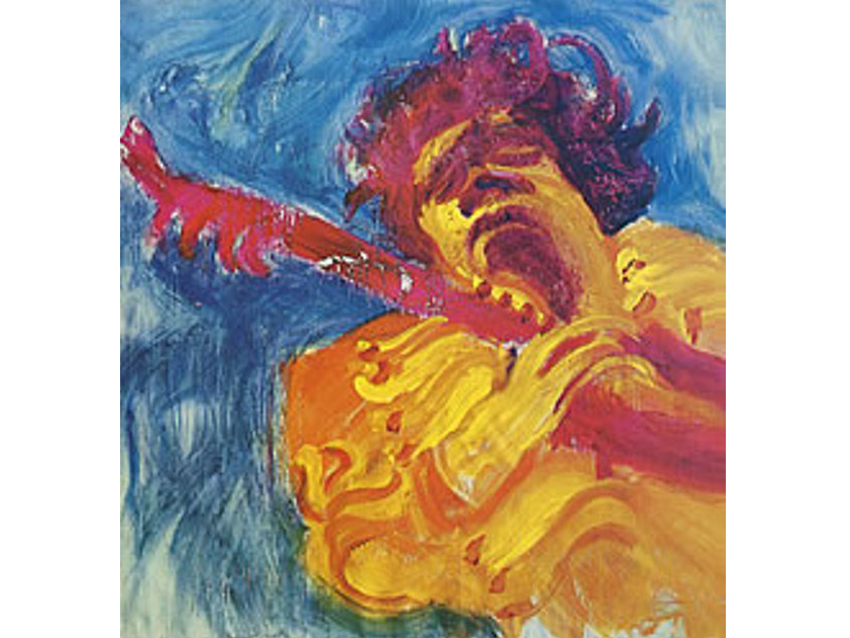
Jimi Hendrix - The Jimi Hendrix Concerts (1982)
“This record gives you a chance to hear Hendrix in a way you don’t on his studio albums. There are some artists that don’t sound as good live as they do in the studio, but to me, Hendrix was all about being on the stage. That’s where he took his songs to places you couldn’t predict.
“Jimi Hendrix is one of those guys that everybody knows; you turn on rock radio, and he’s there with Hey Joe, Purple Haze and so forth. But those things that I heard didn’t knock me out on a guitar level, funnily enough. It wasn’t until I listened to the live version of Stone Free, where the band drops out and Jimi plays on his own, basically composing a brand-new song on the spot – that’s what really hit me.
“The blues tracks on this record are amazing. With this set, I truly ‘got’ Hendrix in a way that I never had before.”
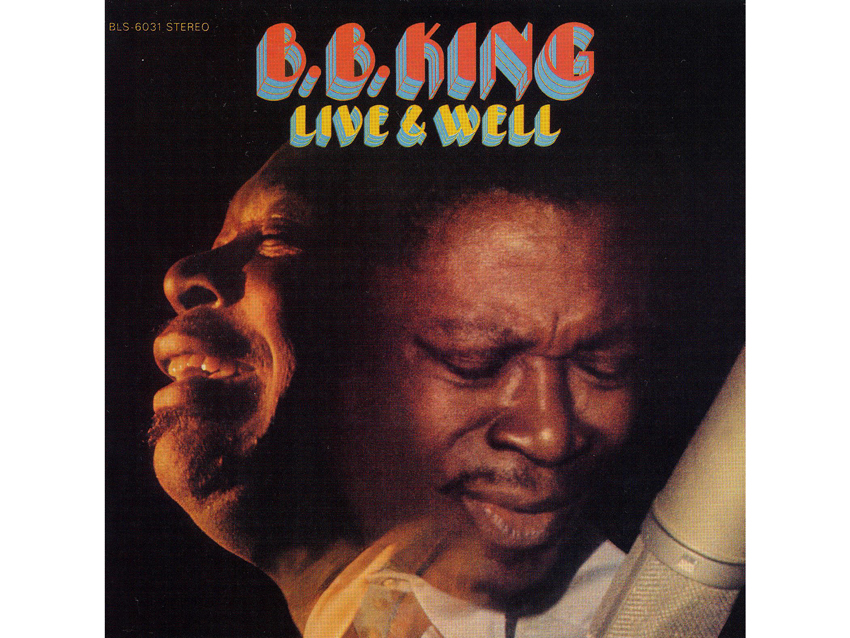
BB King - Live And Well (1969)
“This is way back in time when records had two sides, so the A-side was ‘live,’ and the B-side was ‘well.’ They’re both great.
“The live side is very traditional, and it reminds me of BB's album from Cook County Jail, which was almost one of my choices here. The studio half is more cutting-edge. It has some amazing grooves. There’s some funk, and the rhythm section really jumps out at you.
“The intimacy of the live recordings is incedible. On the song Please Don’t Answer The Door, it gets so quiet – it sounds as if BB is right in the room with you. You can hear him change the dynamic of each note. That's something I’d never heard before. You know, it's always said that you can do more with one or two notes than you can with 100. It’s almost a cliché. But BB really proves that to be true here. Very expressive playing.”
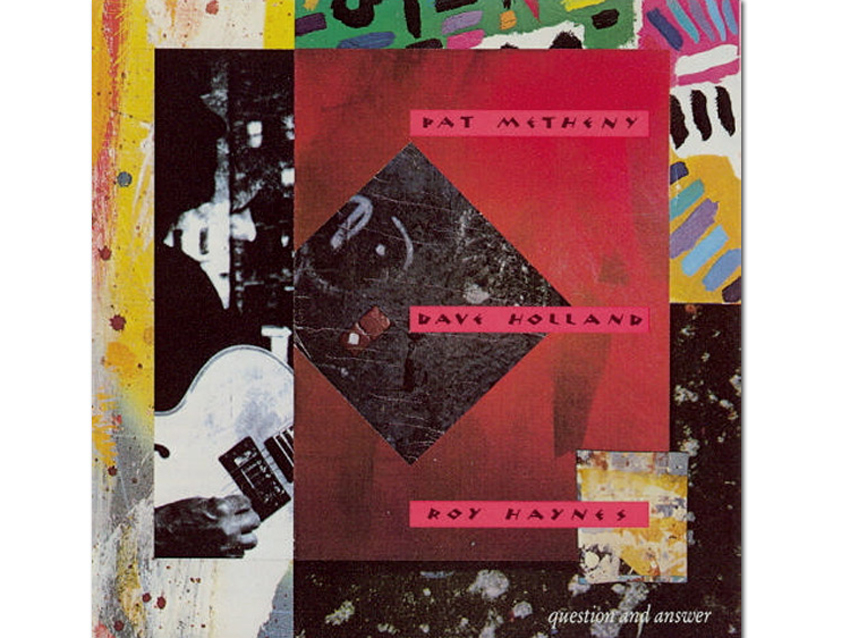
Pat Metheny - Question And Answer (1989)
“This album helped lead me toward more straight-ahead jazz. I was at an Al Di Meola concert, and Question And Answer was playing on the PA system. It was something I’d never heard before, and it was very clearly straight-ahead jazz: upright bass, drums – a guitar trio. The energy was amazing, and it drew me in.
“Listening to it really opened me up and made me see the potential for the guitar trio, and it led me to check out many other Metheny albums as well. What I really like about it is, it has a classic quality, but it sounds new – both then and now; it’s still very fresh and vibrant.”
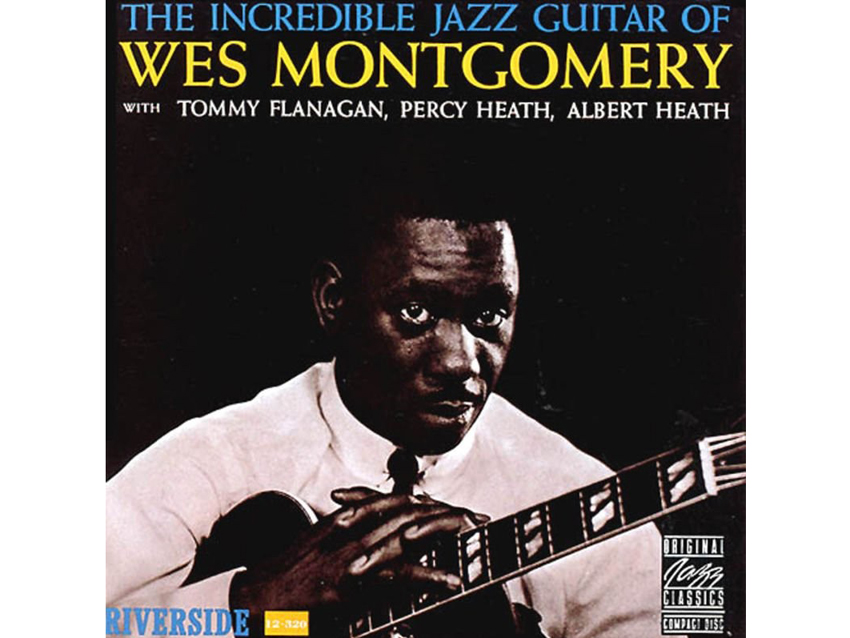
Wes Montgomery - The Incredible Jazz Guitar Of Wes Montgomery (1960)
“As I got more into jazz, I kept hearing Wes Montgomery’s name. I decided to check him out, and I’m really glad I did. He was remarkable. This album is one of my favorites. It’s beautiful to listen to, has a great vibe, and there’s so many incredible licks.
“His technique with octaves was astonishing, and it’s something I incorporated into my own playing. Most of all, I love the songs. It’s one of those albums that, no matter how many times I’ve transcribed something from it, I’ll put it on and it sounds fresh. I always come back to it.”
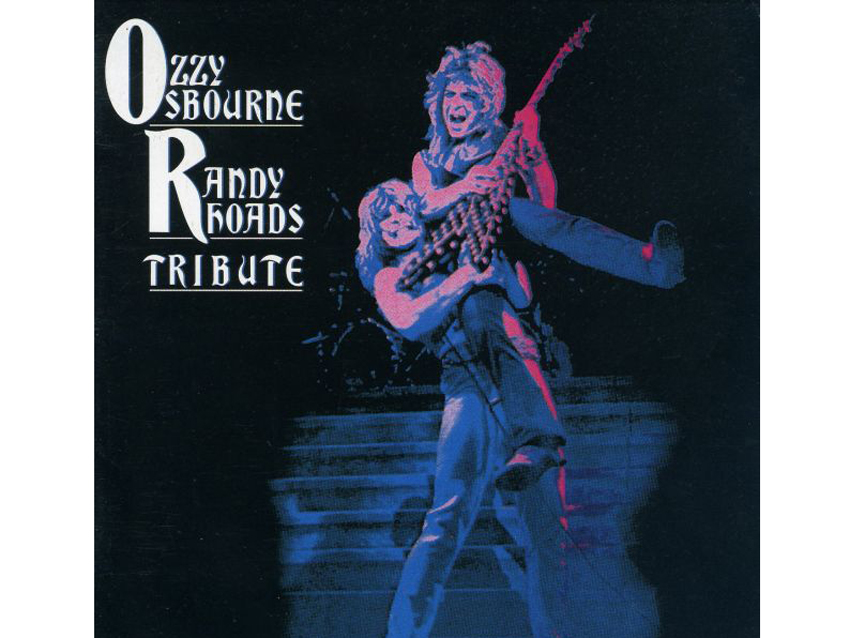
Ozzy Osbourne/Randy Rhoads - Tribute (1987)
“Live albums are kind of like greatest hits collections – you get all the songs. This one was different, though, because it was really all about Randy Rhoads. He was my big metal influence and, without a doubt, was one of the greats.
“The whole Randy story is so tragic because he had a lot of things he wanted to do musically. I think you can really hear where he might have gone, in some ways, on this record, even more so than on the studio albums.
“I love Zakk Wylde and what he did with Ozzy, but to me, nobody came close to Randy. He was one of a kind. What a virtuoso!”
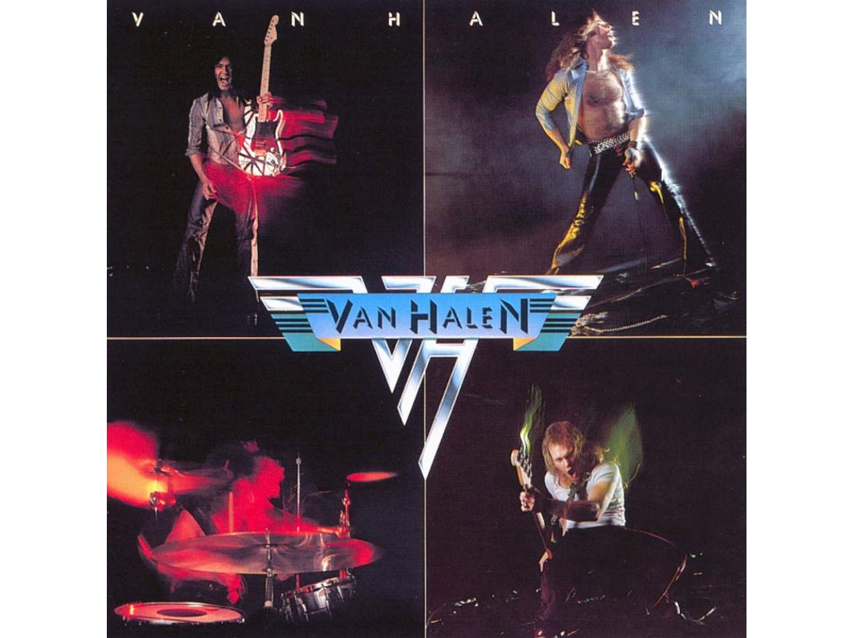
Van Halen - Van Halen (1978)
“This is the album that really blew me away with Eddie Van Halen’s virtuosity and made me see the potential the guitar held. I’ve rarely heard so much raw energy on a single record – from start to finish, it’s like one giant gust of wind.
“It’s got everything: humor, spontaneity, great songs and dazzling musicality. Considering what was going on with the guitar at the time, it’s pretty amazing how Eddie came along and just shattered the paradigm. When nobody was looking, he rewrote the book.
“When I first heard it, I thought, This is going to take me years and years to grasp. As a player, I started with Ain’t Talkin’ ‘bout Love, which was at least comprehensible. Eruption really did take years. There was a lot for me to work on.
“Even now, I can listen to the album and get inspired. I’ve played it for world musicians, people who don’t know Van Halen from Van Morrison, and every time they've said the same thing: ‘That is a master musician.’”
Joe is a freelance journalist who has, over the past few decades, interviewed hundreds of guitarists for Guitar World, Guitar Player, MusicRadar and Classic Rock. He is also a former editor of Guitar World, contributing writer for Guitar Aficionado and VP of A&R for Island Records. He’s an enthusiastic guitarist, but he’s nowhere near the likes of the people he interviews. Surprisingly, his skills are more suited to the drums. If you need a drummer for your Beatles tribute band, look him up.
"At first the tension was unbelievable. Johnny was really cold, Dee Dee was OK but Joey was a sweetheart": The story of the Ramones' recording of Baby I Love You
"Reggae is more freeform than the blues. But more important, reggae is for everyone": Bob Marley and the Wailers' Catch a Fire, track-by-track
"At first the tension was unbelievable. Johnny was really cold, Dee Dee was OK but Joey was a sweetheart": The story of the Ramones' recording of Baby I Love You
"Reggae is more freeform than the blues. But more important, reggae is for everyone": Bob Marley and the Wailers' Catch a Fire, track-by-track


